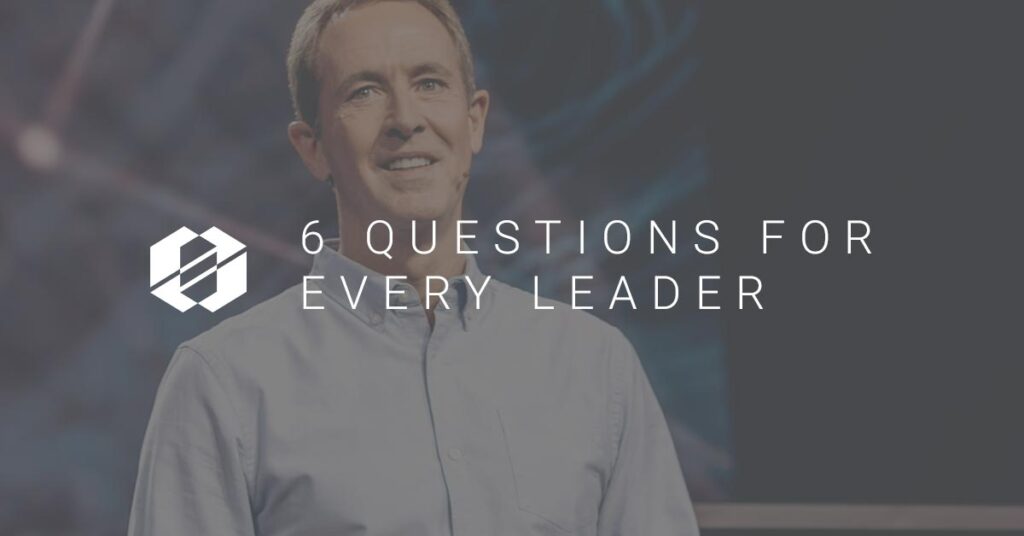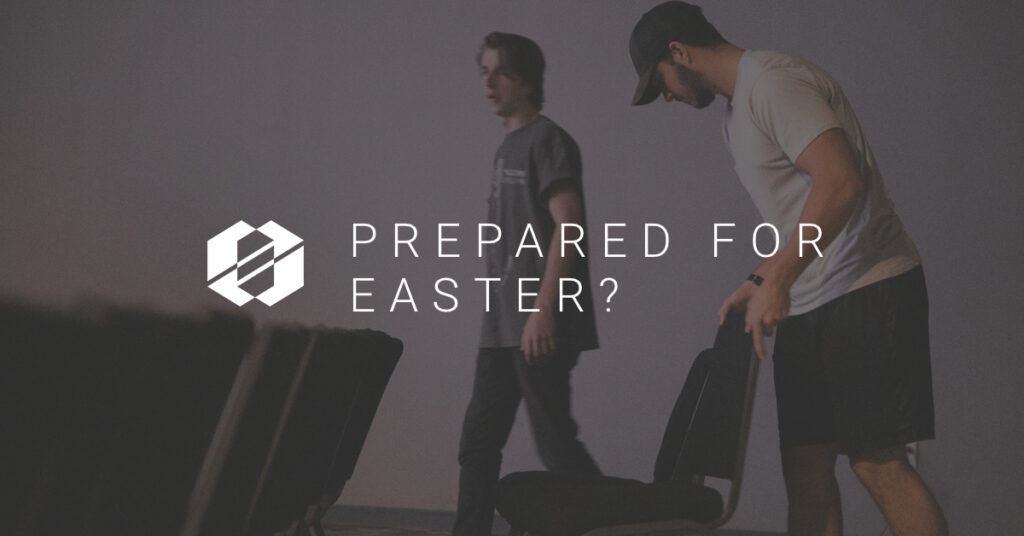Many of you know who Andy Stanley is, the founding pastor of North Point Community Church in Atlanta, GA. Not only is he a one of my favorite communicators in the church, but he’s among the best leadership coaches in the world! Not just the church world, but the entire world! I’ve been learning from him for years, and just a few weeks ago I found myself once again amazed by the insights and wisdom, while at Catalyst Conference.
The topic for Andy Stanley’s talk was about the questions that every leader needs to be asking. Afterword, I was reflecting on a few other times where I’ve heard Andy speak specifically about questions, and found some notes from 2012 of a talk he gave on a similar subject.
One of the things Andy has long stated about questions is that the questions a leader asks their team, sets the priority for what the team will pursue. In essence, questions shape success, because questions determine what needs to be focused on, and highlights what’s important. As a leader, what are the sorts of questions that you need to be thinking about, asking your team, or wrestling with on a regular basis? Andy Stanley believes there are 6 questions for every leader to ask.
1. Who needs to be at the table?
Here, Andy is encouraging leaders to know who should and should not be among the decision making team. In other words, who deserves to be leading and shaping the culture of your team, department or organization? This will help you identify the influencers who need to be speaking into your direction. They may not be a department head or even a direct report. But the people at the table, are the people you trust the most to influence the next season of your mission and vision.
2. Where are we manufacturing energy?
Are there areas in your execution of weekly tasks or projects that you’re having to tell yourself to be more excited in order to get the troops rallied up? It may be as simple as having to work hard at trying to get our congregation excited about a certain/special Sunday or event. Maybe you’re manufacturing excitement around a series, or constantly using FOMO (fear of missing out) as the only marketing tool to get people to show up somewhere. This all leads to manufactured energy and should be carefully watched. Andy says a great gut check is to simply ask yourself, “Would we attend this?” or “Would I buy this myself?”
3. Where do I make the greatest contribution to the organization as a leader?
This is a fairly intimate question to ask yourself, rather than a team, but the answer will help shape where you need to invest more of your time. In essence, it helps set your own internal priorities. If you want to make the greatest impact on the organization, then lead in your strengths, not your weaknesses. Let others lead in their areas of greatest contributions, which means you need to not be contributing in certain places. It may mean you don’t go to every creative meeting as the creative director if a specific medium or creative technique isn’t really your strength. Know your greatest contributions and you’ll see your greatest impact.
4. Who’s not keeping up?
There are times where the leader has to make difficult decisions by letting someone go who may be dragging the team down, but other times that individual just needs to be confronted. Andy says that asking the question of who’s not keeping up helps A-level teams stay in the A-level field, and knowing the answer to this questions allows you to confront what needs to be confronted. A team is only as strong as it’s weakest link, so invest well in your organization by knowing who’s not keeping up?
5. What have we fallen in love with that is no longer the best way to_______?
I remember Andy Stanley telling this to his leadership team, and it’s helped me process certain key decisions myself in the past: “If the board was to hire a new CEO right now, and they were to walk into this room, what is the first thing they would change?” This helps you figure out what you’re keeping only because you built it, or you made it. It allows you to operate as a bystander to the organizational infatuation that has been established over time. Great leaders have the courage to do what needs to be done, in spite of their own personal desires or opinions. So if there’s something that’s not working, or a better way to do something, then a great leader won’t let their current love for that process or service to continue.
6. What would a great leader do?
Andy Stanley believes this is the single question that drives all of his desire for growth. HE has mentioned countless times that he asked himself this exact question on a regular basis. It’s his true north whenever presented in a situation that doesn’t have all the clarity. If we’re asking a question that would beckon the answer of a great leader, then we’re starting to become the very leader we’re striving to be more like. Without this question, we’ll only answer with the information that’s at hand. But when we seek after what that of a greater skill of intuition, wisdom and discernment, then we actually increase our own skills in the process.
What are the key questions you’re asking right now as a leader? How can we as the creative leaders in the church begin to ask better questions to shape a clearer expectation of success in the church? I believe that creatives have the influence and opportunity to begin asking new questions that shape the next strategy or process in which people begin to encounter God through the creative things we present.





